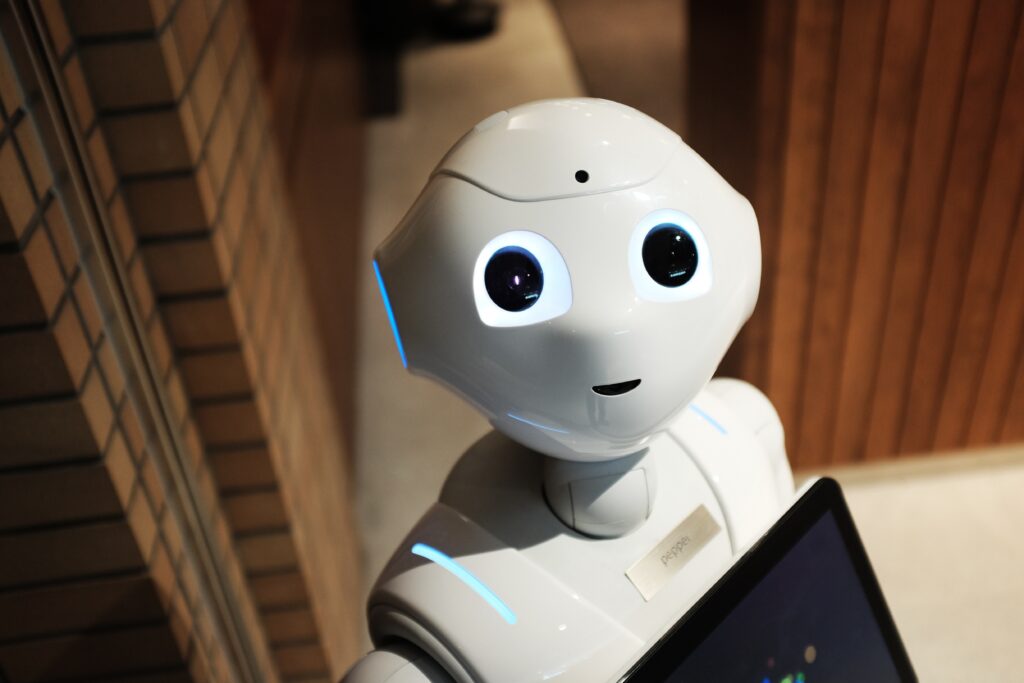
Human manipulation comes to mind when I think of AI (Artificial Intelligence). Human containment. Who are those players that wish to control humanity and take their free will? There are mirrors of this in social media platforms, the backstage players that the public doesn’t see, and the government.
In some instances, regulators seek to put forth and convince humanity in one way, such as with mandated COVID vaccinations, or lose the job.
One must be willing to evolve and not see AI as a threat as we continue to create the future together and envision living here on earth for future generations.
Given the complexity of human and non-human existence on our planet, it is important to work together and put aside personal egos to ensure that we can collaborate effectively and harness the full potential of our technologies to benefit humanity.
As Stephen Downes notes in “Experts doubt ethical AI design will be Broadly Adopted as the Norm within the Next Decade,”
“Ultimately, our AI will be an extension of ourselves, and the ethics of our AI will be an extension of our own ethics.”
–Stephen Downes
Despite the challenges, it is possible to create ethical and responsible AI that can help us address some of the most pressing issues facing our world today.
What are five of the complexities of AI?
AI is rapidly evolving with the potential to benefit humanity. Examples such as improved healthcare, law, transportation, and communication are sectors where we already see constant change.
However, AI comes with several intricacies and challenges.
Here are some of the complexities of AI:
- Diversity of applications. AI is being developed and deployed in a wide range of applications, from healthcare and finance to transportation and manufacturing. Each of these applications has its own unique challenges and requirements, making it difficult to develop a one-size-fits-all approach to AI. Just like healthcare/ medication, where society mistakenly puts patients in buckets, it feels the need to do such ways as if there was no harm.
- Data complexity. AI systems rely on large amounts of data to learn and make decisions. This data can be complex and heterogeneous, making it challenging to preprocess, clean, and structure for AI algorithms. And who is accountable for feeding the information, and from what perspective?
- Explainability. As AI systems become more complex, it cannot be easy to understand how they are making decisions. This lack of explainability can be problematic from an ethical standpoint, as it can make it difficult to ensure that AI decisions are fair and unbiased.
- Safety and security: AI systems can have significant safety and security implications, such as healthcare, transportation, and overall users of the internet. Ensuring the safety and security of AI systems will be a critical challenge in the years ahead.
It is like a kid, constantly evolving. As it progresses, there will be more issues to address and a need for mutual understanding and agreement on how to address ethical issues continuously.

What are some ethical concerns with AI?
Every new tool comes with its pros and cons, just like having a car – there are perks of having one, but there are also downsides.
- Privacy. AI systems often rely on vast amounts of personal data, raising concerns about privacy and security. There is also the risk that AI systems could be used for surveillance or tracking without proper safeguards and permissions.
- Autonomy and accountability. As AI systems become more sophisticated, they may make decisions that affect human lives without human oversight. This raises questions about who is accountable for AI decisions and how to ensure that AI systems act in the best interests of society without biases or discrimination.
- Transparency and explainability. As AI systems become more complex, it can be difficult to understand how they are making decisions. This lack of transparency and explainability can undermine trust in AI systems, reducing their effectiveness.
- Safety and security. There is a risk that AI systems could be hacked or manipulated, potentially causing harm to individuals or society as a whole. Ensuring the safety and security of AI systems will be a critical challenge in the years ahead.
In Exploring the ethical implications of AI, a closer look at the challenges ahead: Kavita Ganesan emphasizes the spread of misinformation.
However, there is still a lot of unanswered questions when it comes to what ethical standards are. Collectively, we would need to first be able to come to a mutual agreement, and actionable consensus on the ethics of AI before information continues to spread – like the spread of weeds in a garden when not good for the garden. The information may not be accurate, but many people consider it the truth, such as the news, which most people who squish the juice of those platforms take as truth.
“Humans do not share a consistent and collective commitment to ethical standards of any technology, especially not with artificial intelligence. Creating standards is not difficult, but accountability to them is very difficult, especially as government, military and commercial interests regularly find ways around systems of accountability.”
– Amy Sample Ward (Worries about developments in AI)

Some questions to ponder as we actively and collectivity create our future:
- How are ethics even measured? And how should those ethics be considered when designing AI algorithms and systems?
- How can we ensure that AI systems are transparent and explainable, so people can understand how decisions are made?
- Who is responsible for decisions made by AI systems, and how can we ensure the best interest for humanity, accountability, and oversight?
- What role should governments and regulators play in ensuring AI’s ethical development and deployment?
- How can we ensure that AI is used for the benefit of society as a whole rather than being controlled by a few powerful actors for their own benefit?
Final thoughts:
Where energy goes, energy flows.
How can we ensure that AI is not being created or used in an ill manner? But again, not allowing that to be the center of why x or z is “bad.”
As mentioned before, you need light and dark to make the day, but the night can’t take all 24 hours. There’s moderation even during seasonal times like the winter and springtime.


